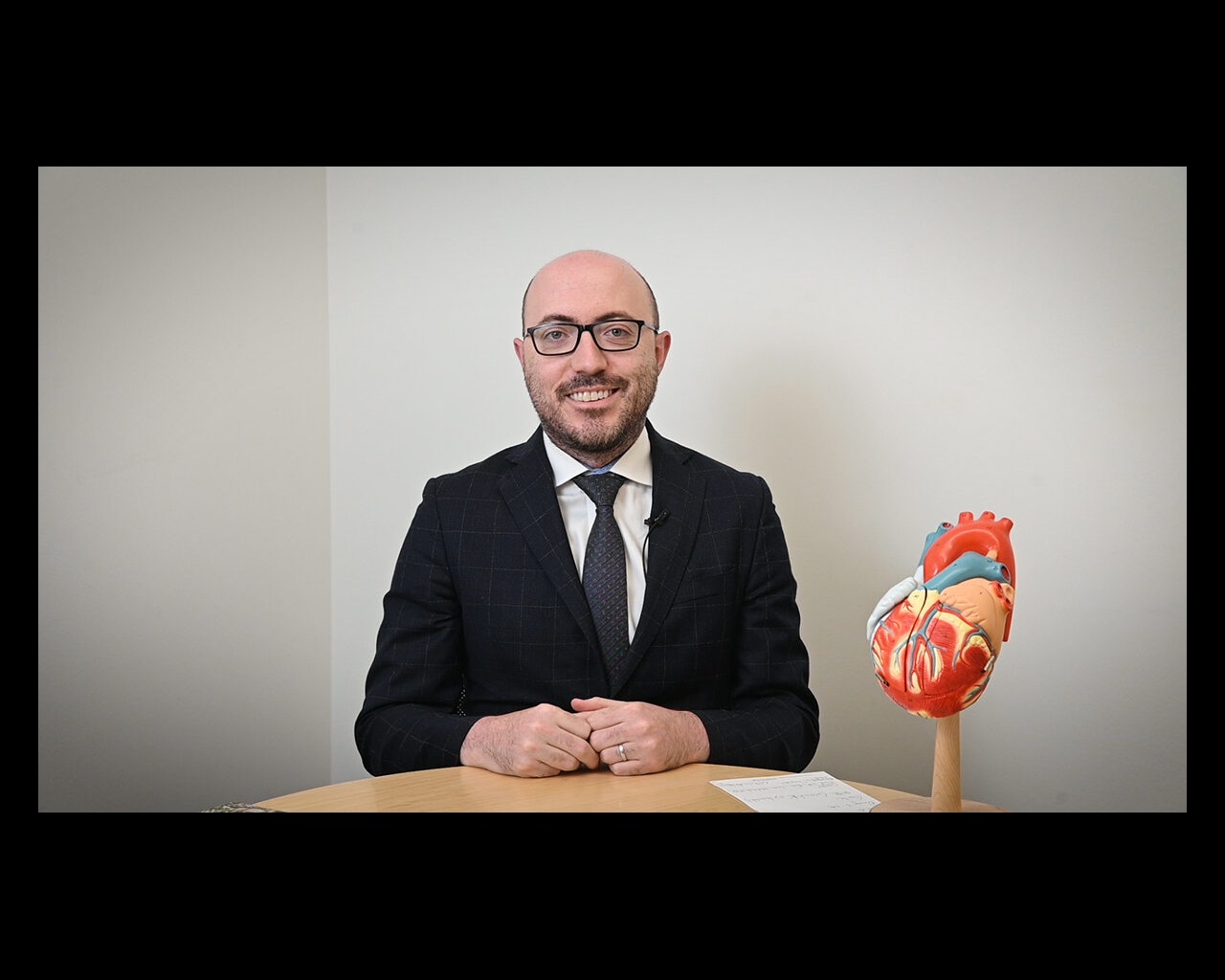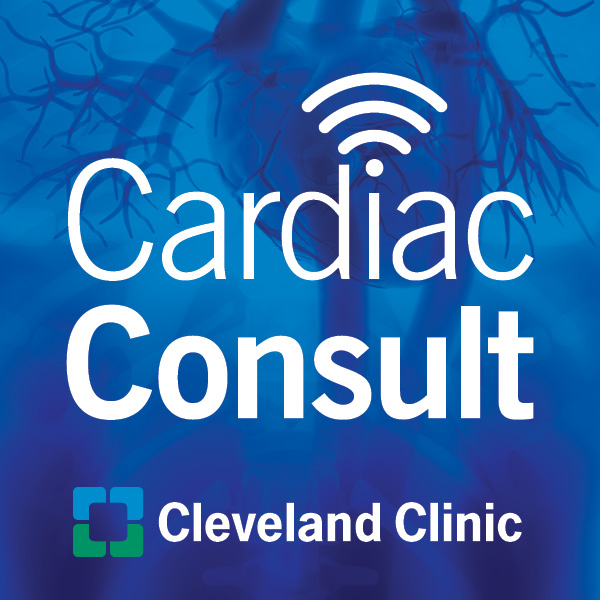Stress is an Important Consideration for Healthcare Providers

April is recognized as Stress Awareness Month. Stress can have many negative direct and indirect effects on your health and wellbeing. Dr. Luke Laffin from the Preventive Cardiology and Rehabilitation Section at Cleveland Clinic explains why is it important to keep stress under control for yourself as well as the patients you care for.
Learn more about stress and emotional health.
Subscribe: Apple Podcasts | Buzzsprout | Spotify
Stress is an Important Consideration for Healthcare Providers
Podcast Transcript
Announcer:
Welcome to Cleveland Clinic Cardiac Consult, brought to you by the Sydell and Arnold Miller Family Heart, Vascular and Thoracic Institute at Cleveland Clinic.
Luke Laffin, MD:
Hello, my name's Luke Laffin, and I'm a preventive cardiologist at the Cleveland Clinic, and I'm Co-Director for the Center for Blood Pressure Disorders here in Cleveland, Ohio. This is a great time to talk about stress and heart health, and stress and heart health, as it relates to physicians and other medical providers.
Luke Laffin, MD:
These last couple of years have been very difficult on everyone, particularly those of us in the healthcare arena. With the COVID 19 pandemic, hopefully winding down to a certain extent, and things getting a little bit more back to normal, hopefully, stress levels come down. But I think we realize that just working in healthcare is stressful altogether.
Luke Laffin, MD:
One thing that I oftentimes see, and that I talk to my patients about, and you probably are talking to your patients about it too, is how we can manage stress and how stress manifests as some unhealthy lifestyle habits, and can ultimately impact cardiovascular risk.
Luke Laffin, MD:
So, the big thing that we've seen - particularly has come into focus during the pandemic - is chronic stressors and how they impact things like blood pressure, ability to exercise, poor sleep... Okay. We published some data looking at blood pressure levels across the country through the start of the pandemic, the first six months, and saw a significant increase in blood pressure in a wide variety of individuals, all the way from down to 20 years of age, up through 75 plus. This was a pretty consistent increase, and that's multifactorial related to not seeing their doctors, and not taking their medicines. But I think stress definitely also played a role.
Luke Laffin, MD:
What kind of stress we're talking about? Well, we're talking about more of that chronic stress. So, the ones that people really make are maladaptive responses, so they get less engaged in exercise. They're getting less sleep overall. Then they're making those poor dietary choices, which you can get away with for a couple of weeks. But if a couple of weeks turn into a couple of months, turn into a couple of years, it can be very difficult to turn those patterns around, get rid of some of the extra belly fat, which ends up rising blood sugar, rising blood pressure, blood cholesterol, et cetera.
Luke Laffin, MD:
When I see patients, particularly those with difficult to control hypertension, stress is one of those factors that we talk about. I think the one thing that's oftentimes overlooked is the impact that stress has on sleep patterns. We know for stable blood pressures, we need to see patients getting about six to eight hours of uninterrupted sleep at night, and if we don't, we tend to see more blood pressure lability, so those ups and downs in terms of that.
Luke Laffin, MD:
So, rather than just throwing your typical angiotensin receptor blocker or ACE inhibitor with them, we talk about what are their sleep patterns, how they can try and improve those, via non-pharmacologic and pharmacologic measures, and then to really track that, and see does a history of poor sleep really correspond to more of these elevated or erratic blood pressures? We know that sleep, or lack thereof, can increase the activity of the renin-angiotensin system, as well as increase the activity of the sympathetic nervous system. Both of these obviously, increase blood pressure.
Luke Laffin, MD:
Finally, one question that I oftentimes get is, "Well, how do you manage stress in your own job in these high-stress situations or high-stress environments? I think that can be challenging. There's no question, but really what we've got to focus on is the basics that we talk to all our patients about. Okay. Trying to make those right dietary choices, trying to at least find 10, 15 minutes throughout the day to have a breakfast, a lunch, and then obviously your dinner as well. Trying to avoid excessive consumption of alcohol, it is going to be helpful. Then carving out, at least a few times a week, 30-plus minutes to do some type of aerobic physical activity, be it on a bike, be it walking, et cetera. Those factors are going to play a big role.
Luke Laffin, MD:
Thank you very much for listening today.
Announcer:
Thank you for listening. We hope you enjoyed the podcast. We welcome your comments and feedback. Please contact us at heart@ccf.org. Like what you heard? Subscribe wherever you get your podcasts or listen at clevelandclinic.org/cardiacconsultpodcast.

Cardiac Consult
A Cleveland Clinic podcast exploring heart, vascular and thoracic topics of interest to healthcare providers: medical and surgical treatments, diagnostic testing, medical conditions, and research, technology and practice issues.



